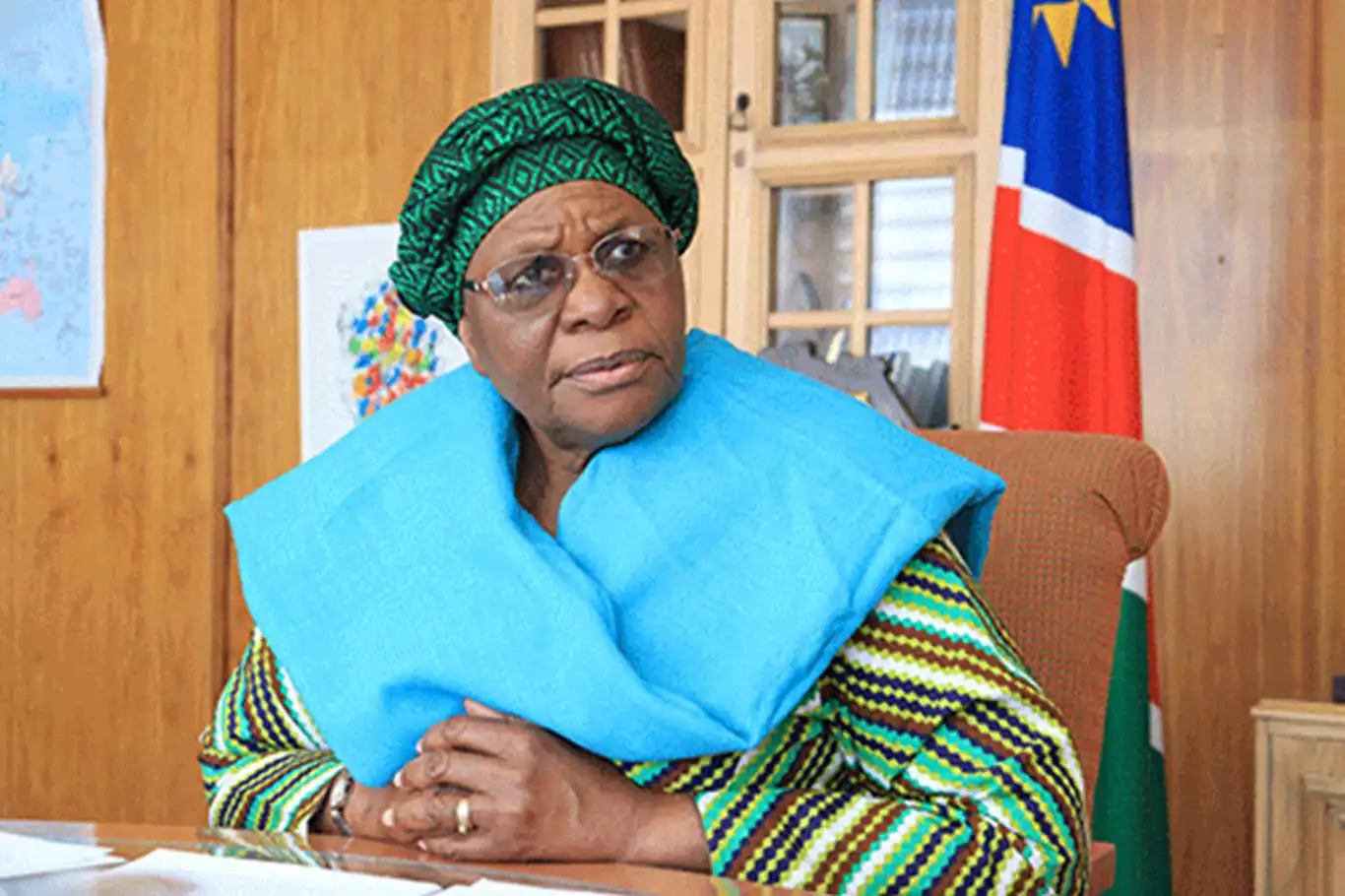Namibia has elected its first female president, with Vice President Netumbo Nandi-Ndaitwah declared the winner of last week’s presidential election, despite controversy over technical issues and opposition claims of irregularities.
Nandi-Ndaitwah, 72, won the election with 57% of the vote, defying predictions that she might face a runoff. Her ruling SWAPO party also retained its parliamentary majority, though by a slim margin, extending its 34-year hold on power since Namibia’s independence from apartheid South Africa in 1990.
However, the election has been marred by a series of problems, including shortages of ballot papers, which led to a three-day extension of voting. The delay sparked outrage among opposition parties, who have labeled the extension unconstitutional and pledged to challenge the results in court.
The Electoral Commission of Namibia has rejected calls for a re-run of the vote.
Nandi-Ndaitwah’s victory marks a historic moment for Namibia, as she becomes the country’s fifth president since independence and a rare female leader in Africa. She was a key member of the country’s independence movement in the 1970s and received part of her higher education in the former Soviet Union. She was appointed vice president in February, following the death of President Hage Geingob.
In a brief speech after the results were announced, Nandi-Ndaitwah thanked voters for their trust and vowed to follow through on her campaign promises. “We are going to do what we promised you during the campaigns. Thank you for your confidence and trust in us,” she said.
Her victory, however, has been overshadowed by widespread criticism of the election process. Some opposition parties, including the Independent Patriots for Change (IPC) led by Panduleni Itula, boycotted the official results announcement. Itula, who finished second with 25% of the vote, has claimed that the election violated Namibia’s Electoral Act and prevented thousands of people from voting.
“This election has violated the very tenets of our Electoral Act. Namibians deserve the right to choose their leaders freely and fairly, not through a rigged process,” Itula said. The IPC has vowed to challenge the results in court, and other opposition parties are expected to join the legal appeal.
The election issues come at a time of growing discontent with long-ruling parties across southern Africa. In neighboring South Africa and Botswana, parties that once led the struggle for independence from colonial or apartheid rule have lost their dominance in recent elections, while Mozambique’s ruling party faces accusations of electoral fraud and violent protests.
Namibia, with a population of about 3 million, is known for its stability and democratic record. However, high unemployment, economic hardship, and frustration among young people have fueled calls for change. SWAPO’s narrow victory in the parliamentary elections, where it secured 51 seats, marks its worst result in years.
The electoral commission reported that just over 1 million votes were cast out of 1.4 million registered voters.
Despite the controversies, Nandi-Ndaitwah’s victory represents a milestone for women in African politics. She is expected to formally address the nation on Wednesday morning.
“SWAPO Wins. Netumbo Wins. Namibia Wins. Now Hard Work,” the ruling party posted on social media following the announcement.
Namibia, a former German colony and later South African mandate, gained independence in 1990 after a long struggle led by SWAPO. The country, rich in diamond and uranium resources, is also exploring untapped offshore oil and gas reserves, which could boost its economy in the coming years.

